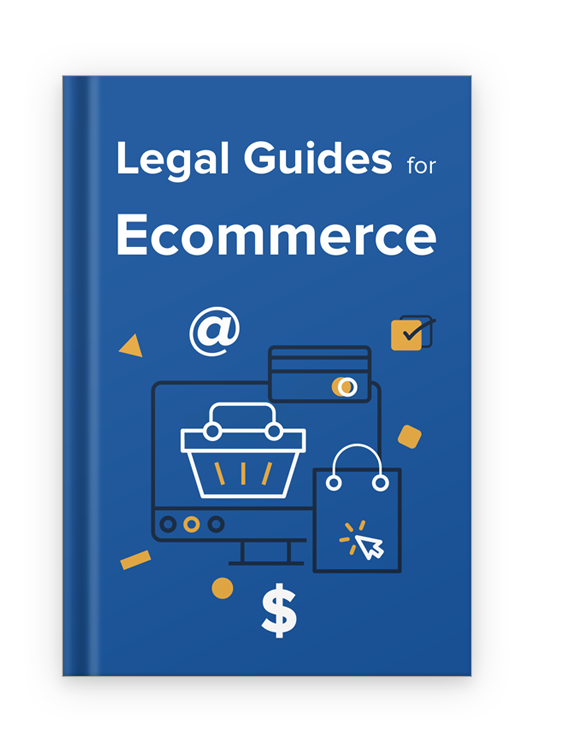
About
There's a lot to consider when starting a retail business: marketing, staffing, accounting. Can you take a salary and still keep the lights on? What will happen if your suppliers suddenly raise their prices? Will your website ever stop crashing?
Getting to grips with the legal implications of running an ecommerce store might be pretty far down on your list of priorities. But few things could be more important. Customers and suppliers will come and go. Blips on the balance sheet are inevitable. Ending up in court, however, can easily sink a small business.
In market economies, the contract is sacred. And an ecommerce store hopes to enter into as many contracts as possible. Every time you make a sale, after all, you take on contractual obligations. The better your understanding of your position under the law, the more control you can exercise over the terms of these obligations. Similarly, the less you understand about your legal position, the more likely you are to encounter problems.
However, it isn't only buying and selling that you have to worry about. While the Internet is well-established as a medium of exchange, privacy law is still playing catch-up. The passing of increasingly strict data protection laws has meant a huge amount of extra work for businesses. And if you think that's an exaggeration, it might be because you haven't done what's required.
This book is an exploration of the legal issues that every ecommerce store will have to deal with. It will give you an edge over any of your competitors who don't understand their legal obligations.
This book is not legal advice, and it isn't designed to get you out of legal trouble. It's not filled with legal theory or musings on the development of case law. Think of it as a guidebook, filled with practical information.
This book will help you understand what you need to do, and how to do it. You're probably too busy running or preparing your business to worry about much more than that.
What's inside
Chapter 1: What this Book Covers
What this Book Covers Ecommerce is increasingly accessible to businesses. It's relatively simple to integrate an ecommerce store into your existing website using one of many ecommerce platforms such as Shopify and BigCommerce. Or, with some web development expertise, you can create your own. By carving out a place in this growing...
Chapter 2: Creating Your Own Store vs Using a Third Party Platform
Creating Your Own Store vs Using a Third Party Platform A properly functioning ecommerce store seamlessly integrates the front end and back end of your retail website. It not only enables customers to buy your products, but it also makes it more likely that they'll do so. An ecommerce store should...
Chapter 3: Privacy Policy and Ecommerce Businesses
Privacy Policy and Ecommerce Businesses While some policies like Terms and Conditions or Return and Refund Policies are strongly recommended, a Privacy Policy (sometimes called a Privacy Notice, Privacy Statement or Data Policy) is a legal requirement, and is also mandatory under the terms of some third-party ecommerce platforms. Businesses are collecting...
Chapter 4: Terms and Conditions and Ecommerce Businesses
Terms and Conditions and Ecommerce Businesses The main function of a "Terms and Conditions" agreement is to set out what your customers can expect from your company, and what you expect from them in return. If properly presented and actively agreed to, Terms and Conditions represent a contract between you and your...
Chapter 5: Return and Refund Policy and Ecommerce Businesses
Return and Refund Policy and Ecommerce Businesses Customers routinely look for a Return and Refund Policy when deciding where to shop online. In fact, a study suggests that 67 percent of online shoppers checked the returns page before making a purchase online. Consumers are, quite naturally, nervous about buying products that they...
Chapter 6: Disclaimers and Ecommerce Businesses
Disclaimers and Ecommerce Businesses So far we've looked at three legal documents: Privacy Policy - A legally mandatory statement about your data protection practices. Terms and Conditions - An agreement between you and your customers which can protect you from legal claims and help you manage user actions. Return and Refund Policy - An...
Chapter 7: Email Marketing and Ecommerce Businesses
Email Marketing and Ecommerce Businesses Despite the rise of social media advertising, email marketing remains the primary way for many businesses to promote their products, bring in new customers, and ensure customer loyalty. In some ways, successful email marketing campaigns have never been easier: Customers are making more of their personal information and...
Chapter 8: Growing Your Ecommerce Store
Growing Your Ecommerce Store In previous chapters, we've looked at some of the privacy implications of operating an ecommerce store. Many of these will be relevant to practically any internet business - for example, creating a Privacy Policy, processing customers' personal information in a secure way, and earning the necessary consent...
